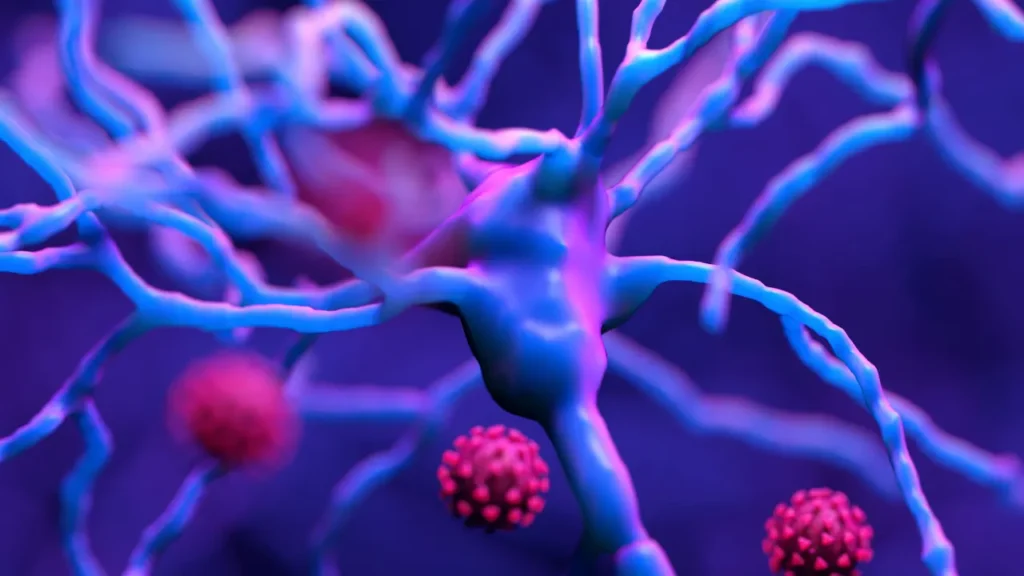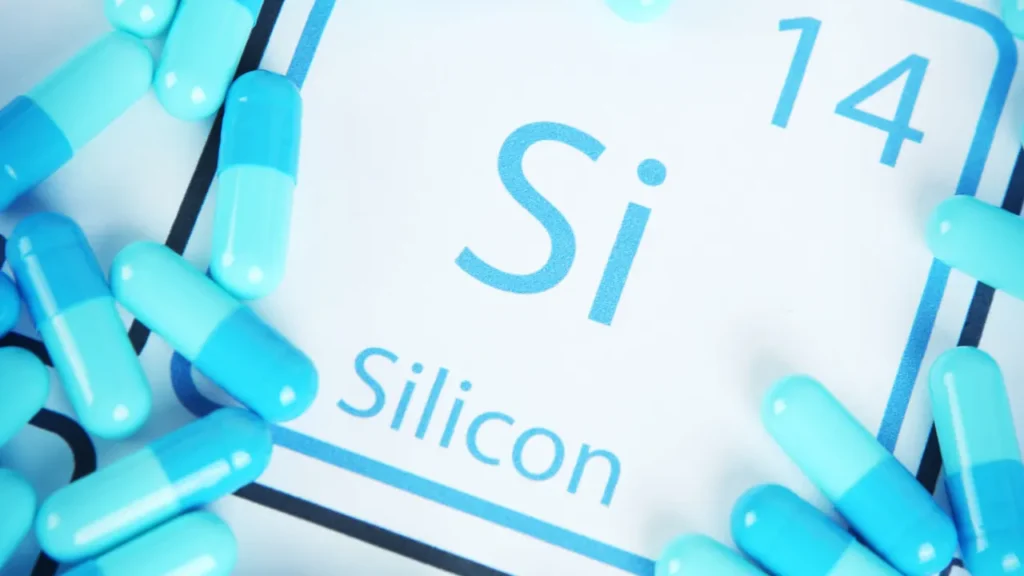Although silicon is usually associated with electronics and technology, it also plays an important role in the field of nootropics. This page explores the many facets of silicon, including its health advantages, ideal dosage, adverse effects, possible interactions with other substances, and relevant information for anyone looking to use this supplement sensibly. This article attempts to shed light on the function of silicon in the human body and brain through an in-depth analysis of its physiological mechanisms and chemical properties. It also provides insights into the appropriate use of silicon as a nootropic supplement.
You May Also Like:
Should You Try CBD for Focus? Here Are the Facts.
CBD for Concentration: The Productivity Hack for Energy and Focus
Silicon: Benefits, Dosage, Side Effects, Drug Interactions, and Other Important Information is an original (NootropicsPlanet) article.
The Nature of Silicon
The chemical element silicon, which has the atomic number 14 on the periodic table, is found naturally in the environment and makes up around 28% of the Earth’s crust mass. It is a common element in the natural world, second only to oxygen in quantity. Silicon is categorized as a metalloid chemically. This means that silicon has both metallic and non-metallic characteristics. Because of its duality, silicon may create a wide range of compounds, such as silicates, which are essential to many different kinds of rocks and minerals. For instance, silicon dioxide (SiO2) is frequently found in quartz.
Silicon is mainly found in biological environments as silicates or silicon dioxide. These types of silicon are consumed by humans through food, with whole grains, cereals, and some vegetables being important sources. Studies relating to the possible health advantages and modes of action of silicon are still ongoing since its biological significance in human health and cognition is less understood than that of other elements.
Health Benefits of Silicon
Silicon has a wide range of health benefits:
Skin and bone health
Recent studies have indicated that silicon may have an impact on skin elasticity, bone health, and cognitive performance. Silicon is necessary for the structural integrity and resilience of connective tissues, as evidenced by its role in the creation of collagen and glycosaminoglycans. There has also been interest in silicon’s potential to prevent osteoporosis and maintain overall skeletal health due to its ability to increase bone density and strength.
Cognitive improvement
Regarding cognitive health, the hypothesized benefits of silicon are linked to its ability to combat aluminum toxicity. Some studies suggest that dietary silicon may reduce aluminum absorption in the gastrointestinal tract and facilitate the excretion of aluminum from the body. Given the controversial association between aluminum exposure and neurodegenerative diseases such as Alzheimer’s, silicon’s role in mitigating aluminum toxicity could indirectly benefit cognitive health and function.
Furthermore, silicon may contribute to maintaining the conditions required for neuronal development and signaling in the brain by supporting the extracellular matrix’s structure. Research on the precise methods by which silicon could protect neuronal health or improve cognitive function is still ongoing. This emphasizes the need for a better understanding of silicon’s biochemical interactions in the brain.

Chemistry of Silicon
Group 14 of the periodic table places silicon between phosphorus and aluminum, indicating that it is a metalloid. Because of this orientation, silicon has a special set of characteristics, including semi-conductivity and the capacity to create large networks of silicon-oxygen connections. With its 14 electrons arranged in a way that allows it to form four covalent bonds, just like carbon, silicon is an atomic material. Silicon can combine to generate a wide range of stable compounds because of its tetravalency which is essential for both its biological and technological uses.
The most prevalent natural form of silicon is silicon dioxide (SiO2), which is composed of four oxygen atoms arranged in a tetrahedral pattern and one silicon atom covalently bound to them. This structure underpins quartz and a variety of sand kinds, demonstrating silicon’s abundance and crucial function in the earth’s geology. Apart from SiO2, silicon is a constituent of numerous silicates, which are compounds of silicon, oxygen, and one or more metals. These compounds are essential to clay minerals and a variety of rocks.
In biological contexts, the biochemistry of silicon involves its role in the formation of silicic acid (H4SiO4) in water, which is the bioavailable form of silicon for humans and other organisms. Silicic acid can form complexes with itself or with other minerals, leading to the formation of polysilicic acids or incorporation into silicates. The solubility of silicic acid in water decreases with increasing pH and temperature, influencing its availability in different environments and biological systems.
The absorption of silicon by the human body primarily occurs in the form of silicic acid or its derivatives. Once absorbed, silicon is believed to contribute to the formation and maintenance of connective tissues, bone mineralization, and possibly the integrity of the blood-brain barrier. The exact biochemical pathways through which silicon exerts its effects are still under investigation, but its involvement in collagen synthesis and its potential to stabilize glycosaminoglycans suggest a multifaceted role in maintaining structural and functional integrity within the body.
Another soluble form of silicon called orthosilicic acid (OSA) is thought to be extremely bioavailable and has been the subject of most investigations on silicon supplementation for health purposes. By providing the body with bioavailable forms of silicon, like OSA, through supplementation, the element’s potential health and cognitive benefits can be maximized.
Physiological Mechanism of Action of Silicon
The physiological processes by which silicon affects the body and brain are intricate and not entirely understood. The suggested mechanism relates to silicon’s capacity to affect aluminum’s neurotoxicity and bioavailability in relation to cognitive health. Based on scientific research, aluminum levels in the body may play a role in oxidative stress and neurodegenerative illnesses. Silicon has the ability to bind to aluminum, lowering its bioavailability and promoting its elimination, potentially lessening the harmful effects of aluminum on neural tissues.
Moreover, silicon may indirectly boost brain function through its involvement in maintaining the integrity and health of connective tissue. The formation of collagen and glycosaminoglycan in the brain’s extracellular matrix, which supports neighboring cells structurally and biochemically, may be aided by silicon, allowing neural networks to continue operating at their best.


Optimal Dosage of Silicon
It might be difficult to determine the ideal silicon dosage for improving cognitive function and general health because it varies greatly according to a person’s age, diet, and level of health. Although the amount of silicon ingested by different populations varies greatly, adults are thought to obtain 20 to 50 mg of silicon daily from natural food sources. The absence of a Recommended Daily Allowance (RDA) for silicon is mostly attributable to the lack of sufficient information regarding its bioavailability and the variation in dietary sources. Supplemental silicon forms, including orthosilicic acid, are safe as long as taken in doses between 5 and 20 milligrams per day.
Side Effects of Silicon
When taken at usual dietary levels, silicon is thought to be harmless and does not appear to have any major adverse effects. On the other hand, using large amounts of silicon supplements may cause bloating and constipation in addition to other gastrointestinal problems. Considering the scarcity of studies on the extended usage of silicon supplements, it is advisable to supplement with caution and seek medical advice prior to integrating it into one’s routine.
Potential Substance Interactions of Silicon
More research is needed in the field of silicon’s interactions with other compounds, including drugs and supplements. Theoretically, though, there is a chance that taking supplements containing silicon may interfere with drugs with a narrow therapeutic index, changing the way those drugs are absorbed and work. For example, certain medications may become less bioavailable if silicon binds to them in the gastrointestinal tract. Before beginning silicon supplementation, people on prescription drugs should speak with a healthcare professional until further information is available.


Responsible Use of Silicon
Starting with dietary sources of silicon to boost intake organically is a prudent method for anyone interested in investigating silicon as a nootropic supplement. To increase silicon levels in the diet, include foods high in silicon, such as whole grains, bananas, and green beans. When thinking about supplementing, it’s crucial to choose a bioavailable form of silicon, like orthosilicic acid. You should also begin supplementation at the lower end of the dosage range, progressively increasing it based on your reaction and tolerance.
It is crucial to monitor for adverse side effects, especially when beginning silicon supplementation. Given the lack of comprehensive data on long-term silicon supplementation, maintaining a conservative approach and avoiding high doses is advisable. Consulting with a healthcare professional, especially for individuals with existing health conditions or those taking other medications, can provide personalized advice and ensure that silicon supplementation is approached safely.
Silicon:
Conclusion
Silicon not only has a place in the field of electronics and technology but it can also be used and found in dietary supplements. The body can absorb silicon in a particular state such as silicon dioxide. The use of this supplement is believed to play a role in promoting bone health, connective tissue strength, and overall collagen formation. Aside from general health benefits, silicon can also help the excretion of aluminum from the body which can lower the onset of neurodegenerative disease. More study is needed to better understand the intricate biochemical interactions of silicons in the brain. If you see the potential in silicon dietary supplements, consult your doctor before starting the supplementation routine.


References:
- Silicon – Uses, Side Effects, and More. Retrieved from: https://www.webmd.com/vitamins/ai/ingredientmono-1096/silicon
- The Potential Influence of Silica Present in Drinking Water on Alzheimer’s Disease and Associated Disorders. Retrieved from: https://pubmed.ncbi.nlm.nih.gov/17435954/
- Silicon-Rich Mineral Water as A Non-Invasive Test of the ‘Aluminum Hypothesis’ in Alzheimer’s Disease. Retrieved from: https://pubmed.ncbi.nlm.nih.gov/22976072/
Important Note: The information contained in this article is for general informational purposes only, and should not be construed as health or medical advice, nor is it intended to diagnose, prevent, treat, or cure any disease or health condition. Before embarking on any diet, fitness regimen, or program of nutritional supplementation, it is advisable to consult your healthcare professional in order to determine its safety and probable efficacy in terms of your individual state of health.
Regarding Nutritional Supplements Or Other Non-Prescription Health Products: If any nutritional supplements or other non-prescription health products are mentioned in the foregoing article, any claims or statements made about them have not been evaluated by the U.S. Food and Drug Administration, and such nutritional supplements or other health products are not intended to diagnose, treat, cure, or prevent any disease.
